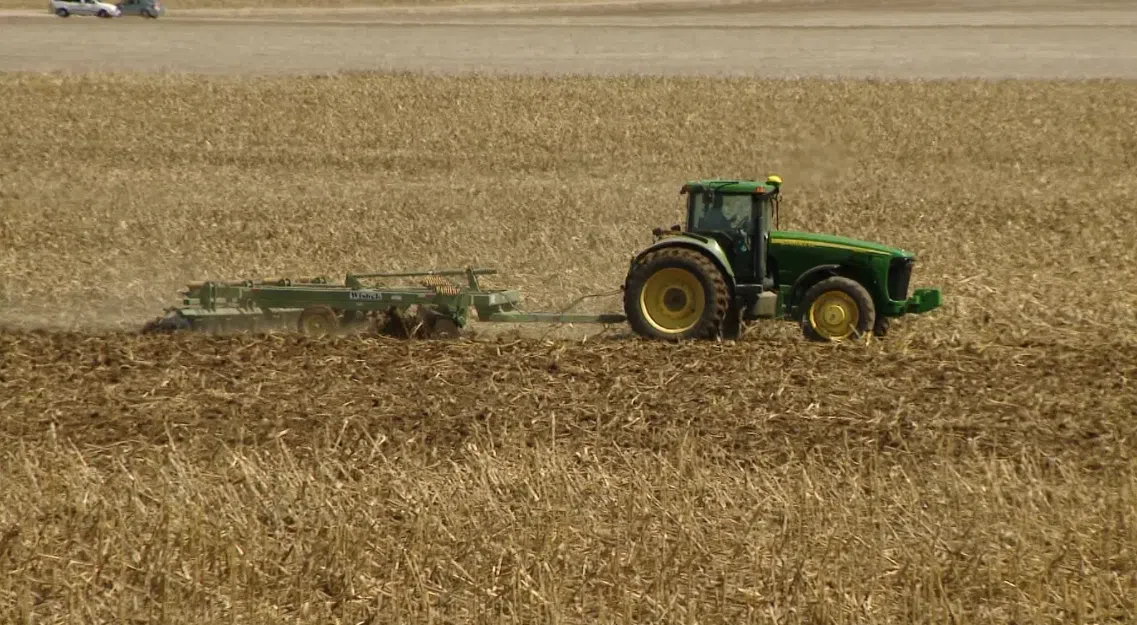
The back-and-forth tariff battle between the U.S. and China is impacting soybean farmers in Wisconsin, April 16, 2025. PC: Fox 11 Online
WAUPACA COUNTY, WI (WTAQ-WLUK) — The back-and-forth tariff battle between the United States and China is impacting soybean farmers in Wisconsin.
China raised tariffs on U.S. imports to 125% after President Donald Trump imposed 145% tariffs on imports from China.
A soybean farmer near Scandinavia in Waupaca County is getting ready to plant his soybean crops. Don Lutz of Lutz Farms says he wants to start planting next week, and he’s concerned the tariffs could eventually affect his bottom line.
“I think that the farmers are fairly, I don’t want to say they’re resilient to this, simply because we’re all going to be impacted at some level, whether it’s major or not as significant,” Lutz said.
Soybeans are the number one export to China, Mexico and Canada. In fact, about 60% of soybeans grown in the U.S. are exported.
Lutz is trying to stay cautiously optimistic about the profitability of his soybean farm this growing season, despite the ongoing trade war with China.
“There’s so many things left to be decided in this tariff thing, and that doesn’t mean it doesn’t impact corn just as much it may soybeans along the road. So, we’re still staying the course for our products,” Lutz said.
Lutz is worried there will be less buyers, as China is beginning to look at other countries for goods. He doesn’t plan on making any changes to his crop just yet, but he has it in the back of his mind.
He believes the best thing for the U.S. to do is keep marketing itself.
“I’m a big proponent of figuring out if we can add value-added products. What types of new things can we develop out of soybeans? Both the oil and the meal that’s there to capture more value of it,” Lutz said.
Congressman Tony Wied, R-8th District shared a statement on the matter:
As a member of the House Committee on Agriculture, and specifically the Subcommittee on Nutrition and Foreign Agriculture, I understand how important it is to ensure that American soybean farmers have robust access to foreign markets, including China and other Asian countries, as well as domestic markets through supporting and utilizing biofuels, like biodiesel. This is why I am committed to getting a Farm Bill across the finish line with strong Foreign Market Development and Market Access Programs to facilitate the opening of other strong soybean markets in Asia. However, I believe China has historically not played by the rules and has no choice but to come to the table and negotiate fair trade deals so our farmers can compete on a level playing field.
On the other side of the political aisle, Wisconsin’s Democratic Sen. Tammy Baldwin agrees China has been trading unfairly, but would rather see tariffs used more strategically than how Trump is implementing them.
“I think we ought to have tariffs in our tool box, but we should use it in a very targeted manner,” Baldwin said.





Comments